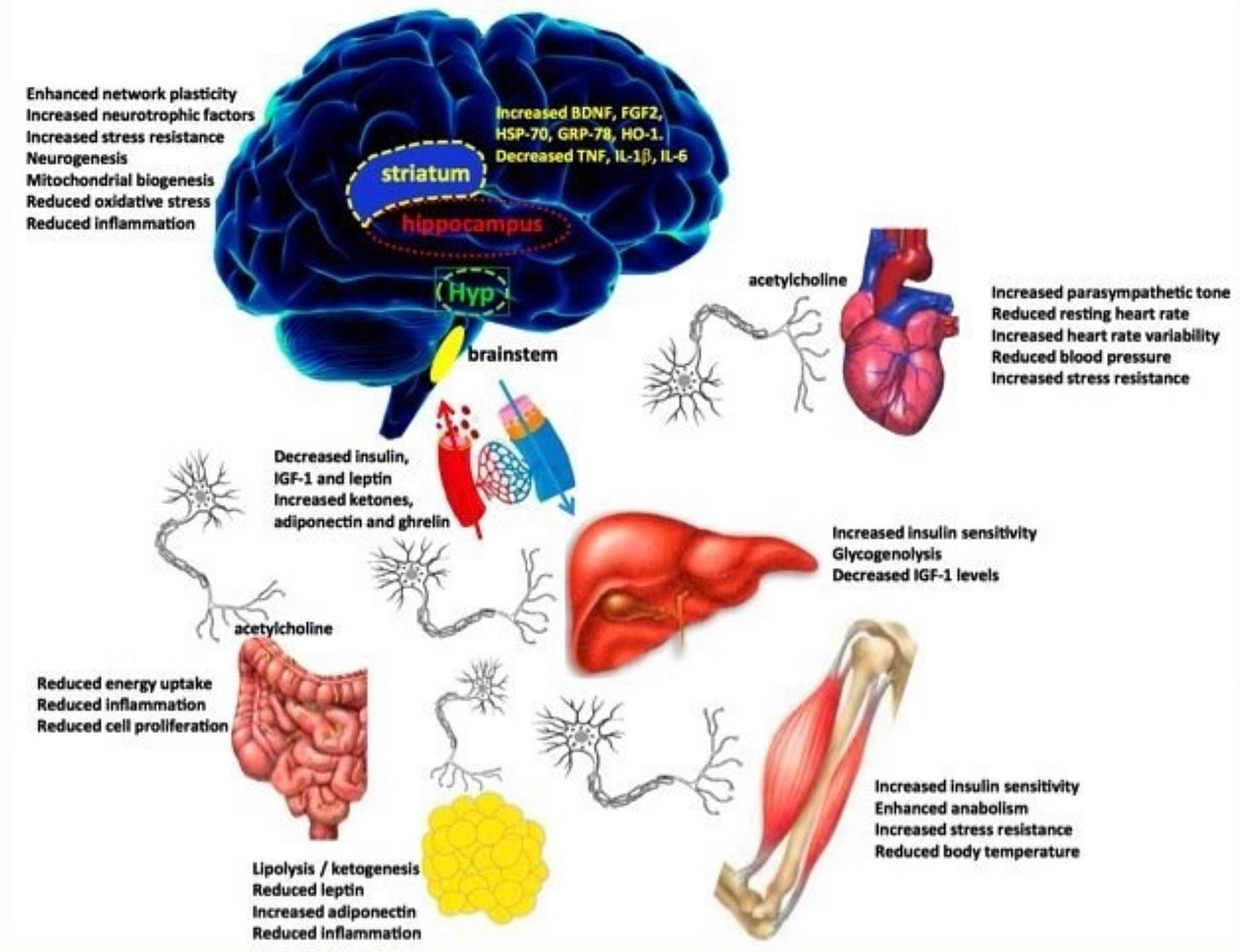Fasting: Pros and Cons
The Subconscious Fat of It

LOCAL LOVE: Lyndsey Crofoot is the fitness manager at Crunch Gym in South Beach, where I work. She’s the best boss I’ve ever had. She somehow gets me and others to do a lot at Crunch, and the numbers show this. Since she’s been fitness manager at Crunch (since November of last year), we have hit our target goals in training sales every month except for one. That’s a way better record than any manager we’ve had in the past three years.
If you stop by Crunch Gym, congratulate her on being such a great boss and person. Mr. Skeptical sees the title of my post and adds, “Why would anyone purposely not eat? It just seems stupid to me.”
“A lot of people fast regularly to improve their health.”
“Most people don’t enjoy life without food. There’s a thing called ‘hangry’ where one is angry because they haven’t eaten. You know it rhymes with hungry?”
He says it all in such a way that one could miss the enormous underlying sarcasm.
Subconscious Fat at 30,000 feet
A rational person can conclude that going for long periods without eating can have a healing effect because it’s what happens every time one gets sick.
“Maybe someone is sick because they aren’t eating,” says Mr. Skeptical.
“That can happen too, but my point is that if you get a cold or the flu, often you’re not hungry. Many see that as the body's innate intelligence taking the energy it would use for digestion to boost the immune system to fight an infection.”
“Fine, that may happen, but it still doesn’t mean it’s beneficial to go without eating.”
“There’s lots of evidence that there are benefits to long periods without eating. The scientific literature shows that fasting improves metabolism, weight loss and fat burning, cellular repair and longevity, mental clarity, and focus.
Subconscious Fat at 10,000 feet
One notable long-term observational study supporting the longevity benefits of fasting is the research on populations that experienced famine during World War II. For example, the Dutch Famine Birth Cohort Study found that individuals exposed to famine conditions during pregnancy had a lower prevalence of obesity and metabolic disorders later in life, suggesting a potential link between caloric restriction and increased lifespan. This study highlights how caloric deprivation periods can prime the body for better health outcomes and longevity.
Mr. Skeptical sneers. “Whatever, that’s just one study. It’s still a hard task to do.”
“There are benefits to doing hard things. See a post I wrote on that here. There’s also much more scientific evidence of the benefits of fasting.”
Subconscious Fat at Eye-Level
I had a severe stomach issue years ago. I went to two different hospitals. One hospital did a scan of my stomach and concluded I had an inflamed intestine, but all else looked fine. The other hospital said that I’ll likely need my gall bladder removed eventually, so I should just do it now.
I refused to get my gallbladder removed. Instead, I visited a Naturopathic Doctor who recommended I fast for seven days and get colonics at the same time.
Mr. Skeptical jumps in, “Was it easy?”
“No. I went for about seven days (sort of) without eating, and it was one of the hardest things I’d ever done.”
Mr. Skeptical lifts his arms. “Thank you. There it is. It was hard. And what did you mean by (sort of)?”
“Well, I cheated during the fast. I couldn’t go for seven days. I drank lots of hemp milk and ate other snacks. I even had an urge to murder people who I saw eating.”
Mr. Skeptical lets out a triumphant laugh.
Practical Suggestions and Conclusions
The naturopathic doctor’s advice to fast did help cure my stomach issue. However, the way she recommended fasting, I wouldn’t suggest. She said I needed to eat only fruits and vegetables the days before and after going on and coming off the fast.
I have since fasted again and found it less challenging to fast coming off and going back on a carnivore diet. Many in the carnivore and keto communities report fasting is much easier because nothing satiates the body like eating meat.
The only con I see with fasting is that it can be challenging. However, as with many difficult things, it can be made much easier by doing it little by little. I recommend the following points to make fasting easier.
-Start with intermittent fasting (create an eating window where you only eat for certain hours of the day (6-12 hours) and decrease the eating window slowly. Once down to 6-8 hours daily, only then begin your first full-day fast.
-Stay hydrated and consume salt. Preferably Celtic Sea Salt, Himalayan Sea Salt, or Redmonds Salt.
-View hunger as waves that come and go. One can ride out the hunger wave.
-Fast after eating a carnivore or mostly carnivore diet. This will make it a lot easier.
-Look forward to the benefits, especially the increased mental clarity and energy that one often feels while on a fast.
-Hire a coach or guide to help you go through it. Being in a community with others who are fasting is helpful.
Be aware.
PS Links in Facebook and Instagram. Full disclosure: Chat GPT was used to research and enhance this post.



